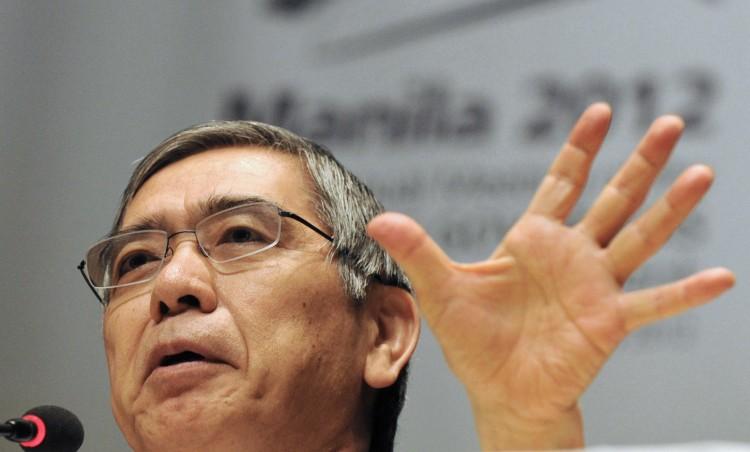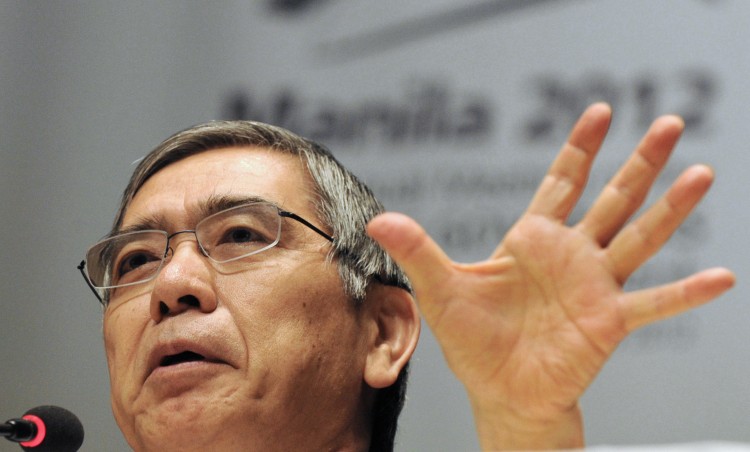Japanese Prime Minister Shinzo Abe campaigned on a platform of spurring growth through targeting inflation. To carry through this policy, Abe will appoint academic Haruhiko Kuroda as the next head of the Bank of Japan, who stands for very easy monetary policy, according to a report by Japanese News Agency Nikkei on Feb. 25.
The former finance ministry official who had vocally campaigned for a formal inflation target in 2002 is perceived to be the ideal person to carry out Japan’s new form of monetary policy.
Richard Howard, chief strategist of Hayman Capital, a hedge fund, predicted this move would be coming. “The Bank of Japan has effectively surrendered its independence to the government of Japan. ... We are seeing a see change in the direction of BoJ policy. The announcement of the 2 percent inflation target is an enormous step forward. The next step is to have a governor … who is committed to the execution of that task,” he told the Epoch Times Feb. 7.
The Bank of Japan had announced in January that it would start buying $145 of government securities starting from January 2014 to reach a formal 2 percent inflation target. Outgoing governor Masaaki Shirakawa already announced this month that he would step down March 19 after chairing his last meeting March 6-7.
By no means a monetary conservative, Shirakawa is thought of as more moderate than Kuroda, the reason Prime Minister Abe pushed for the switch, despite disagreement from the opposition parties.
Markets reacted well to the news, with the Nikkei stock index rising 221 points or 1.95 percent to close at 11,608 Feb. 25. The Japanese yen lost ground against the dollar in afternoon New York trading Feb. 24. The dollar rose from 93.4 yen to 94.4 yen within minutes after the first rumors of the appointment surfaced.
Despite the good reaction from markets, there are risks associated with this easy money policy, says Richard Howard.
“The problem with trying to create inflation is that debt is going to be harder to service. The hope is that the inflation creates enough nominal growth to enable the higher debt service costs,” he says and predicts the yen will weaken further.
“We expect the yen to devalue from here and we expect interest rate to rise in a sharp sudden fashion at some point over the next couple of years.”







